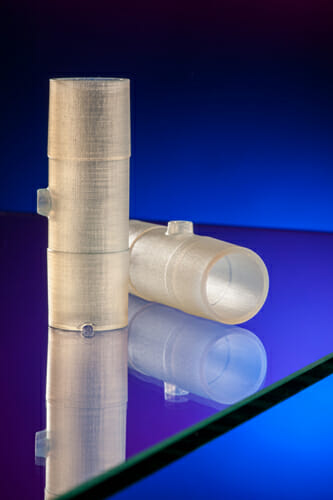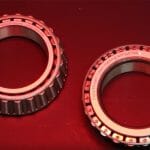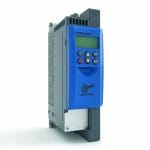In early March, the government announced it was looking for businesses with the capability to support in the supply of ventilators and ventilator components, as part of its plan to fight the Covid-19 pandemic, now sweeping the UK.
Dr. Iain Crossingham, Respiratory Consultant at Royal Blackburn Teaching Hospital’s Chest Clinic, contacted a group of businesses that had come together to act as a fast-response consortium following the government’s call to arms.
Dr. Crossingham had identified the need to increase available ventilator capacity by commissioning the design and production of a single-use, consumable exhalation valve – the type required to aid patients with breathing difficulties.
Specialists in mechanical component design and 3D additive manufacturing, Mackart Additive, were ready to respond. Following correspondence on the evening of Friday 27 March, a sketch of Dr. Crossingham’s idea for a life-saving valve was sent to Mackart Additive for consideration.
In a matter of hours, Mackart Additive developed a detailed 3D CAD model of the component, which was approved by Dr. Crossingham for production to begin the very next day. Barely 12 hours later, on the morning of Saturday 28 March, the first 3D printed part had been completed and was soon on its way to The Royal Blackburn Teaching Hospital.
On receipt, Dr. Crossingham began to test the part using clinical equipment. With strict flow and pressure standards to meet, the exhalation valve passed successfully first-time without any issues.
Steven McCarthy, Managing Director at Mackart Additive, said: “Mackart Additive is no stranger to tackling technical challenges against tight schedules. With in-house engineering, design and 3D printing capability, we are used to developing and manufacturing bespoke components and precision tooling for aerospace clients and Formula One teams, using 3D printing techniques.
“Working with Dr. Crossingham on the ventilator project has been a privilege. Being able to contribute has meant we have been able to put our skillset to good use at a time of national emergency – a challenge we knew we had to rise to. The fact we were able to turn the exhalation valve around so quickly, and for the component to meet medical requirements, was a huge achievement.”
Dr. Crossingham said: “When the part arrived from Mackart Additive it worked perfectly. Over recent days we have used the new exhalation valve to successfully ventilate a test lung, which is amazing. The fit on the connectors was perfect and held pressures to 40cmH20 while the intentional leak from the port passed the ventilator circuit test algorithm without any warnings. Brilliant work.”
The combined effort between Dr. Crossingham and Mackart Additive is just one example of how 3D printing technology and engineering expertise, when combined, can achieve remarkable real-word results and make a tangible difference to people’s lives.







